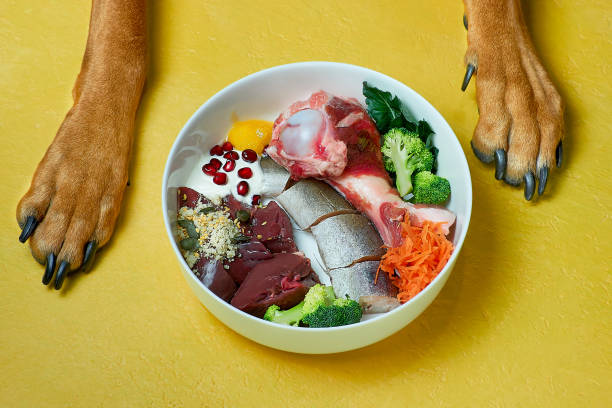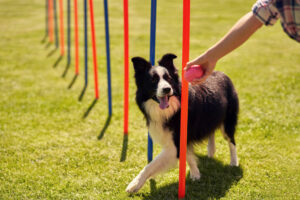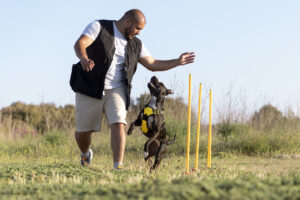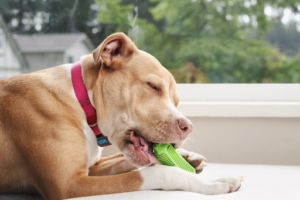What your dog eats is really important for keeping them healthy and fit. But there’s no single diet that works for all dogs, because different breeds, ages, and how active they are can mean they need different kinds of food. To figure out the best diet for your dog, you need to think about a few things:
Life Stage & Activity Level:
Puppies: They grow rapidly and therefore require more calories and Best Diet Food for Dogs Fitness. Look for diets labeled for growth or puppies.
Adults: They need maintenance diets that keep them healthy without making them gain excess weight.
Seniors: As dogs get older, their metabolism tends to slow down. This means they may require fewer calories, but it can be helpful to provide them with diets that have added joint supplements, fiber, and special nutrients to support their aging organs.
Active Dogs: Working dogs or highly active breeds need more calories and protein to support their energy needs.
Size:
Small Breeds: Often benefit from small kibble sizes. They might need more calories per pound than larger dogs due to a faster metabolism.
Large Breeds: Especially as puppies, they need specific diets that ensure they grow at the right pace.
Specific Health Concerns:
If your dog has allergies, they could do well with diets that are free from grains, have fewer ingredients, or are designed to be hypoallergenic.
If your dog is carrying extra weight, they’ll need a diet with fewer calories, but it should still have enough protein to keep their muscles strong.
For dogs dealing with joint problems, diets that include glucosamine and chondroitin supplements can be helpful.
Quality Ingredients:
When choosing dog food, check if it contains whole meats or meat meals like chicken, beef, or fish as the main ingredients. Avoid foods with unnecessary fillers, artificial colors, flavors, or preservatives.
Beneficial additives: Omega-3 fatty acids (for skin and coat health), probiotics (for digestion), and antioxidants (for immune system support).
Hydration:
While not a “food”, water is vital. Wet foods can also help increase water intake.
Treats and Extras:
Keep in mind that treats and leftovers from your table contain calories. If you’re giving them to your dog, make sure to include them in your dog’s daily calorie count.
Opt for healthy treats such as lean meats, veggies (like carrots and green beans), and fruits (like blueberries, but not too much). Stay away from grapes, raisins, onions, garlic, chocolate, and anything containing xylitol, as these can be harmful or toxic to dogs.
Consultation:
It’s essential to work with your veterinarian when deciding on the best diet for your dog, especially if the dog has specific health concerns.
Regular Exercise:
In addition to diet, regular physical activity will help keep your dog fit and healthy. Depending on the breed and age, this could mean anything from daily walks to vigorous play sessions.
To sum it up, the ideal diet for your dog depends on what they specifically need and their unique situation. Keeping up with vet appointments, keeping an eye on your dog’s weight and how they look, and paying attention to any changes in their behavior or health are all important to make sure your dog stays in good shape and stays healthy.







